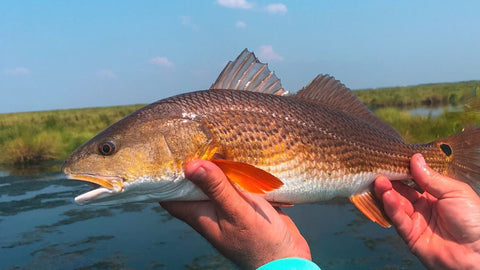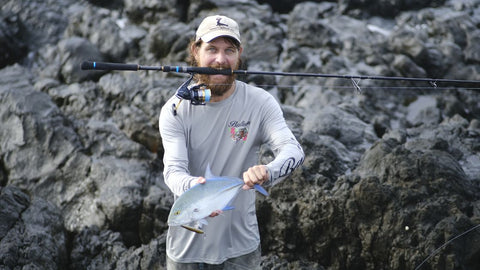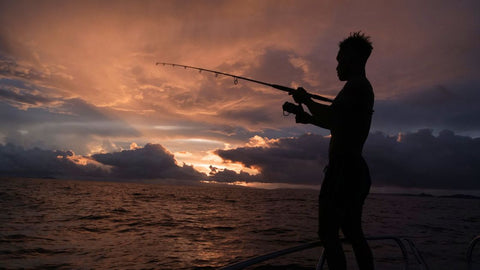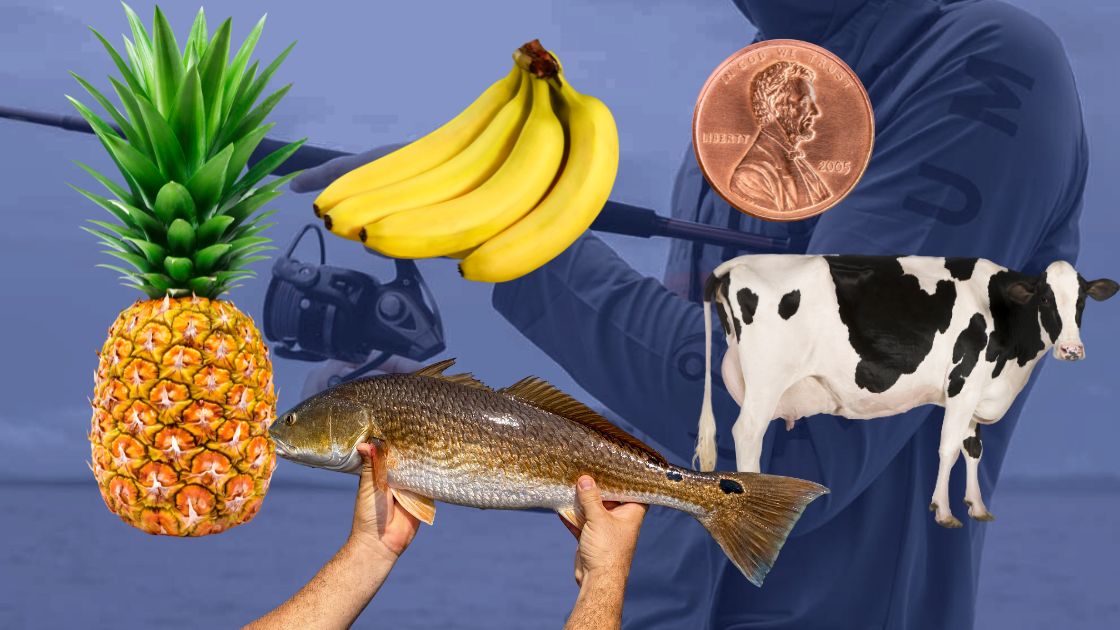Key takeaways
- Customs like avoiding bananas or releasing the first catch, infuse a dose of fun and mystery into every fishing trip.
- The varied perceptions of these superstitions among anglers echo a shared culture.
- Fishing's rich tradition of superstitions adds a whimsical touch to the quest for the big catch, blending lore with luck.
Fishing is a sport, a hobby, and a profession that’s as old as time, and with that comes a tackle box full of superstitions, myths, and lore. If you’re anything like me, sometimes it feels like you need all the luck you can get to make the big catch. That’s where some of the most popular fishing superstitions come into play. From avoiding bananas on the boat to kissing the first catch of the day before tossing it back into the water, these beliefs are thought to either reel in good luck or shoo away the bad.
Now, every angler has their own take on these superstitions. Some of us might consider them as unbreakable laws, while others might just chuckle at them, treating them as nothing more than a sprinkle of fun and a nod to tradition.

No matter where you stand, there’s no denying that superstitions have found their cozy spot within the fishing culture. As we cast our lines into the water, we also cast into centuries of these myths, making each fishing trip a journey between the old and the new, the known, and the unknown.
Keep reading to find out what the most common fishing superstitions are.
Table of Contents

Bananas bring bad luck on boats
One of the longest-held beliefs in the fishing world is that bananas bring bad luck. As we discussed extensively in the post Why Are Bananas Believed To Bring Bad Luck on Boats?, everything from floating bananas marking sunken ships in olden times to the ethene gas from ripening bananas causing food to spoil or posing a fire risk are believed to be the reasons behind this myth.
This superstition extends to anything remotely banana-related—even Banana Republic shirts or banana muffins might find no favor. Today, many anglers and boaters choose to play it safe by keeping bananas off their boats, if only for the sake of ensuring calm waters and a fruitful (pun intended!) day of fishing.
Pineapples bring good luck
On the flip side, pineapples are thought to be bearers of good luck. Supposedly, the superstition originates from the Caribbean, where pineapples are a symbol of abundance and fertility. On fishing boats, sailors would bring pineapples or strap one to the bow of a boat for luck and safety. Some anglers also eat pineapple before or during a fishing trip to attract good luck.
Tossing the first catch back in
Another tradition among anglers is to toss the first catch of the day back to the water. This superstition holds that if you keep the first fish, the waters notice your greed and the fish become elusive.

On the other hand, if you show respect to nature by returning that first catch, you're setting yourself up for a day of bountiful catches. Some even recommend enhancing your luck by either kissing or spitting on the fish before tossing it back. Superstitions aside, there are ways to return fish safely back into the water, which we talk about in a previous post on catch and release fishing.
First cast curse? Or make the first cast count?
Speaking of firsts, it is said that catching a fish on your very first cast of the day is deemed bad luck, with some anglers believing that such early success could spell misfortune for the remainder of the day. On the other side of the spectrum, some believe the curse manifests only if you fail to scrutinize the water with a keen eye on subsequent casts. Then again, there are some anglers who argue the importance of making the first cast count, suggesting that with each cast, the chances of spooking fish increase.

No whistling
A serene day by the water can quickly change for some anglers if there's whistling involved. There's a superstition that whistling can bring about bad weather, especially strong winds. This belief may trace back to old sailors who thought whistling could anger sea gods, causing a storm. Alternatively, some see it tied to the quiet nature of fishing, where a whistle could disrupt the calm and possibly scare off the fish. Whether stemming from old tales or etiquette, the no-whistling belief holds its place firmly in fishing culture.
"Good luck” is bad luck
Telling an angler “good luck” before they head out is often seen as a jinx rather than a kind gesture within the fishing community. This superstition, widely recognized among fishing enthusiasts, holds that uttering the phrase brings bad luck not only to the one it was said to but also to the one who said it. It's perceived as a kind of temptation of fate, with repercussions that might include a fruitless fishing endeavor, encountering bad weather, or facing equipment failures. The roots of this belief might be traced back to sailors' thinking that fate was predetermined.

They feared that saying "good luck" was an attempt to alter the destined course of events, which in turn, could invite misfortune either on the person they were wishing well or on themselves. The same goes with “goodbye,” which supposedly tempts fate so that you won't cross paths with that person you said it to, again. If you’re caught in doubt on what well wishes to offer, it's said to be better to steer towards wishing someone a safe journey, keeping the potential misfortune at bay.
Check out the cows
Some anglers think that if cows are active and grazing in the fields, it's a good sign that fish will also be active in the water. Allegedly, the basis of this belief lies in the reaction of both cows and fish to barometric pressure changes. It's thought that like cows, fish become less active during certain shifts in barometric pressure, often tied to approaching weather changes.

So, some anglers like to observe cows before heading out to fish, adding a unique twist to predicting a successful fishing day based on the act of checking out cows.
Lucky lures, hats, shirts, necklaces
Some anglers have their own set of quirky traditions when it comes to ensuring a successful catch. Often, these traditions revolve around a particular item or piece of clothing believed to bring good luck. It could be a treasured lure, a favorite hat, or even a lucky shirt, all of which can be seen to add a fun, personal touch to the fishing experience.
Looking for a fishing shirt for your next angling adventure? Check out these bestsellers!
Unlucky words
Among some fishing circles, uttering words like rabbit, pig, rat, and drown is considered bad luck. The idea is that since pigs can't swim, mentioning them could bring misfortune on a fishing venture. Similarly, the fear of drowning is so prevalent that saying the word "drown" or "drowning" is thought to possibly bring about the feared event.
Tossing a penny
It is said that tossing a penny overboard can bring about favorable winds, ensuring a safe and successful journey on the waters. This tradition stems supposedly from the belief in sea gods, who have the power to control the wind and waves. By offering a small token, like a penny, sailors and anglers hope to gain their favor and receive a bountiful catch in return.
Conclusion
From tossing pennies for favorable winds to avoiding bananas on board, these customs blend humor, tradition, and a touch of mystery into the sport we love. They reflect hope, camaraderie, and an acknowledgement of the unknown. Whether you’re a believer or not, these superstitions bind the fishing community, enriching each new venture into the waters with age-old traditions.
Of course, if the fish aren't biting and you suspect it's more than just an unlucky utterance, we've got you covered. Head over our post, 4 Reasons Why Fish Aren't Biting (And What You Can Do About Them), to unravel the reasons that might be keeping that prized catch just a tad out of reach.
MOST READ NEWS:
How To Use Your Fishing Records to Catch More Fish
Track your fishing trips, analyze patterns, and refine your techniques with a fishing log to catch more fish on every outing!
Solo Fishing Safety Tips: Stay Safe and Enjoy the Outdoors
Learn essential solo fishing safety tips: gear checklist, boat safety, emergency preparedness, weather monitoring & fishing location scouting. Stay safe on the water.
Secrets to Winter Fly Fishing Success
Master winter fly fishing with expert tips on trout behavior, essential gear, and proven techniques. Learn the secrets to catching more fish in cold weather.
How Cold Water Changes Fish Behavior: Insights for Anglers
Explore how cold water affects fish behavior and fishing techniques, enhancing your angling success and strategy.
Is Tech Making Fishing Too Easy? Exploring Forward-Facing Sonar (FFS)
Learn about forward facing sonar in fishing - what it is, how it works, rules for tournaments, ethics, and tips for finding fish with this game-changing technology.
Plan Your Best Fishing Trip Yet this 2025: A Complete Guide
Plan your fishing trip this off-season. Learn to choose destinations, prep gear, pick bait, and trust Baitium for expert tools and tips!
15 Fishing Resolutions for 2025: Set Yourself Up for Success
Discover 15 essential fishing resolutions for 2025: tackle organization, gear maintenance, angling techniques, conservation tips, tournament prep, and fishing safety guidelines.


